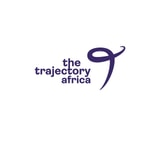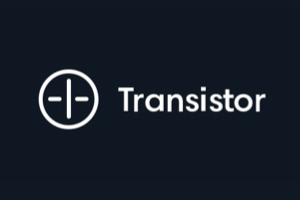The Trajectory Africa – Détails, épisodes et analyse
Détails du podcast
Informations techniques et générales issues du flux RSS du podcast.

The Trajectory Africa
Tayo Akinyemi
Fréquence : 1 épisode/42j. Total Éps: 35

Classements récents
Dernières positions dans les classements Apple Podcasts et Spotify.
Apple Podcasts
🇫🇷 France - investing
03/05/2025#93
Spotify
Aucun classement récent disponible
Liens partagés entre épisodes et podcasts
Liens présents dans les descriptions d'épisodes et autres podcasts les utilisant également.
See all- https://www.gatesfoundation.org/
134 partages
- https://kinyungu.com/chasing-outliers/
42 partages
- https://www.chimamanda.com/
13 partages
- https://spoti.fi/2RS6hTc
24 partages
- https://spoti.fi/2Uq3IJ3
2 partages
Qualité et score du flux RSS
Évaluation technique de la qualité et de la structure du flux RSS.
See allScore global : 83%
Historique des publications
Répartition mensuelle des publications d'épisodes au fil des années.
Asset Efficiency in B2B E-commerce: Maad’s Journey to Single Market Scale
Saison 3 · Épisode 4
jeudi 24 avril 2025 • Durée 01:20:48
In this episode of The Trajectory Africa’s series on digital commerce and logistics, Sidy Niang and Jessica Long, Co-founders of Maad, a retail platform connecting FMCG brands and retailers in Senegal, share how they think about asset efficiency as a way to own assets strategically, once demand is assured. Maad embraces the reality (and the challenges) of physical infrastructure, but uses technology to manage assets efficiently. Sidy and Jessica also talk about how to expand the thin margins common in b2b ecommerce, increase revenue opportunities for retailers, and scale by going deep in one market.
[00:00] - Introduction
[02:02] - Maad origins and evolution from SaaS provider to retail distribution
[06:21] - Bits vs. atoms and the value of technology
[12:07] - Distribution value chain, Maad’s value proposition, and market dynamics in Senegal
[27:51] - Asset efficiency
[37:43] - Maad’s business model
[42:16] - Operational excellence and cost structure
[54:54] - Digital commerce business models (asset-heavy vs. asset-light)
[1:08:32] - Scaling deep in one market
[1:14:12] - First principle of building in digital commerce
Recommendations:
- Chasing Outliers: Why Context Matters for Early Stage Investing in Africa. A report I co-authored on VC investing in Africa.
Connect on social media:
Premium "Informal" Retailers: How Sarafu Captures Value in B2B E-commerce
Saison 3 · Épisode 3
jeudi 17 avril 2025 • Durée 01:04:06
This episode of The Trajectory Africa features Firas Ahmad, CEO of Sarafu, a B2B e-commerce platform, and AzamPay, a payments platform, both in Tanzania. Firas shares his approach to running a digital commerce business—focusing on delivering premium service to customers who are willing to pay, running data-driven operations, and turning cost centers into revenue generators. He also explains why informal markets are more optimized than they appear, why making analog processes digital isn't enough to win, and how you balance value creation with value capture.
[00:00] - Introduction
[02:00] - Corporate intrapreneurship and digitizing last mile distribution
[11:43] - Monetizing price transparency and efficiency and serving premium informal retailers
[33:28] - Asset-heavy vs. asset-light strategies
[41:23] - Viability of pure play B2B e-commerce businesses and Sarafu’s business model
[53:05] - Sarafu’s ecosystem approach
[59:00] - First principle (value creation vs. value capture)
Recommendations:
- Chasing Outliers: Why Context Matters for Early Stage Investing in Africa. A report I co-authored on VC investing in Africa.
Connect on social media:
Banking Africa's Ambitious: Anatomy of a Partner-Powered Neobank
Saison 2 · Épisode 7
jeudi 11 juillet 2024 • Durée 01:19:50
According to research by global consultancy Simon-Kucher in 2022, fewer than 5% of neobanks were profitable. A recent update suggests that most are still loss-makers, although a path to profitability is emerging.
Also in 2022, Tech Cabal’s reporting on Kuda Bank’s NPLs (non-performing loans) sparked a discussion about what levels make sense for companies doing instant loans. And in a brilliant series of episodes about African neobanks, Afrobility posed a fundamental question: how do you profitably sell financial services to customers traditional banks don’t want (because they’re unprofitable)?
It’s an important question because many companies start by delivering a core service—p2p transfers, payments, saving, investment, lending. But as they fight to own the customer and increase market share, they migrate into other areas. We explored that dynamic in the last two episodes about cross-border payments and financial operations. After all, part of the high growth playbook is to dominate a beachhead market and expand into adjacent value added services. And what is the practical realization of that logic in fintech? A neobank, of course.
In this episode with Kiiru Muhoya, Co-Founder and CEO of Fingo, “the bank for Africa’s ambitious” and Judith Bongoko, Fingo’s Chief Commercial Officer, we talked about two keys to solving this puzzle: 1) cultivating the next generation of financial services consumers; and 2) strategically partnering with banks. We also chatted about which starting point is the most strategic for a neobank and financial literacy as a workhorse ingredient in the secret sauce of customer retention.
Tune in to hear about:
[2:05] - Fingo’s mission and key functions of a banking system
[7:16] - Fingo’s product journey
[15:11] - Early signs of product market fit and best starting points for neobank building
[26:42] - Growing the next generation of financial services consumers
[33:00] - The yin and yang of partnering with Ecobank
[49:14] - Regional dominance as a platform for partnership
[57:36] - Fingo’s business model
[1:01] - How a bank partnership aligns cost and revenue curves; CAC as a first mover
[1:07] - Navigating competition when “winner takes all”
[1:13] - Counterintuitive first principle
Recommendations:
- Chasing Outliers. Why Context Matters for Early Stage Investing in Africa, a report I co-authored on VC investing in Africa
- Afrobility has done several excellent episodes on neobanks. They contributed greatly to background research for this episode:
#24: Neobanks (African WealthTech Pt 2) - How TymeBank, Kuda & other digital banks are delivering banking services across Africa
#34: Kuda Bank - How Nigeria’s most popular Neobank is scaling to offer financial services to “every African on the planet”
#68: Branch - From Kiva to providing consumer loans and FinTech services across Africa and other developing markets
#69: FairMoney - How the credit-led neobank is providing consumer loans and financial services across Nigeria, India and other developing markets
#70: Carbon - How the credit-led neobank is providing loans, BNPL and financial services across Nigeria and Africa
#71: TymeBank - How the South African Neobank is integrating digital and physical experiences to provide holistic financial services across emerging markets
Connect on social media:
- Kiiru Muhoya on LinkedIn
- Judith Bongonko on LinkedIn
- Kiiru Muhoya on Twitter
- The Trajectory Africa on LinkedIn
- Tayo Akinyemi on LinkedIn
- Tayo Akinyemi on Twitter
B2B Payments: Unseating Cash through Value Chain Integration
Saison 2 · Épisode 6
jeudi 27 juin 2024 • Durée 01:04:47
This episode of The Trajectory Africa features Yele Oyekola, Co-founder and CEO of Duplo, a company on a mission to streamline financial operations for African businesses. We’re diving deep into the world of digitizing financial operations, from payables and expense management to reconciliation and reporting.
Africa’s $1.5T B2B payments market represents a massive opportunity in a space that’s ripe for innovation—think medium to large businesses in industries like FMCG, logistics and manufacturing. These companies have a lot of challenges like managing manual operations to navigating payment terms.
But it’s not just about payments— it’s really about the unsexy business of digitizing financial operations. Digitizing payments bleeds into tackling financial operations as a whole—payments in the front, financial operations in the back. (Huge thanks to Gwera Kiwana for being first to apply the mullet metaphor to finance, specifically crypto.)
And the dimensions of this opportunity, from money movement to workflow automation, are pretty interesting. In Episode 5, Verto’s CEO Ola Oyetayo made the connection between enabling cross-border payments and managing tasks like account receivables. With Yele, we dig into how to dislodge cash within a value chain by automating transactions across it.
Tune in to hear about:
[2:08] - The basics of b2b payments
[15:50] - What Duplo does, how it started, and the size of the bizopps opportunity
[22:55] - Acquiring customers’ customers
[33:46] - Automating the key functions of a finance department
[42:10] - Duplo’s tech stack and business model
[56:21] - Value chain integration/infiltration as moat
[1:02] - Counterintuitive first principle
Recommendations:
- Chasing Outliers. Why Context Matters for Early Stage Investing in Africa, a report I co-authored on VC investing in Africa
Connect on social media:
Thinking Differently: A Case for Venture Building in African VC
Saison 2
mardi 18 juin 2024 • Durée 01:14:32
On this special episode of The Trajectory Africa, we’re featuring “someone you should know”—David Ogundeko, Founder and Chief Vision Officer for Funema, a last-mile, impact-focused, alternative investment company.
David has spent the last 7 years creating a model to engineer and invest in problem solving, impact creating, high growth SMEs. In the process, he’s reimagining a VC model for Africa, and has built the operational muscle to back his claims.
In this conversation, we’ll learn how David’s challenging experiences as a founder spurred him to create a model that protects founders and their impact potential while still building big, profitable businesses.
The Trajectory Africa is helping David tell his story to support his bid to join the 11th cohort of VC Unlocked: Silicon Valley, 500 Global’s flagship investor education program. Help David get to Stanford in September by donating here.
Tune in to hear about:
[3:07] - The dangers of faux expertise
[8:00] - Funema’s origin story
[11:39] - How Funema confronts extractive capitalism
[16:55] - Protecting founders’ equity in the context of a VC fund
[32:06] - Funema’s impact on its portfolio
[39:00] - Balancing mission and three paths to growth
[49:56] - Thoughts on talent
[1:00:27] - Finetuning how you communicate about your mission
[1:09:57] - Counterintuitive 1st principle
Recommendations:
- David's LinkedIn post on original thinking.
- Chasing Outliers. Why Context Matters for Early Stage Investing in Africa, a report I co-authored on VC investing in Africa
Connect on social media:
Cross Border Payments and the Alchemy of Price and Volatility
Saison 2 · Épisode 5
jeudi 23 mai 2024 • Durée 59:03
On this episode of The Trajectory Africa, we’re talking to Ola Oyetayo, Co-Founder and CEO of Verto, the first "all in one" cross-border payments platform for corporate treasuries in emerging markets. He’ll help us understand the mechanics of cross-border payments, why they're so expensive in Africa, how to improve price transparency and manage volatility, and how supporting cross-border payments evolves into accounts payable workflows.
We're picking up a theme that emerged in Episode 2, when Samora Kariuki highlighted intercontinental money movement as an “unlock” for the rest of the (digital) financial system. Similarly, Wiza Jalakasi from Episode 3 argued that money should move the way Africans and their business activities do—across borders. Finally, in the last episode with Sassoum Niang on building payments infrastructure, she emphasized that the tech isn’t the hardest part. It’s the financial operations—reconciliation, accounting system integration, and currency settlement.
So, we’re pulling on all those threads in this conversation with Ola.
Tune in to hear about:
[2:14] - Sharing Verto’s origin story during a product launch
[7:08] - The problems in cross-border payments that Verto solves
[11:53] - The role of price transparency and what causes volatility
[28:49] - How cross border payment facilitation evolves into supporting business operations
[49:37] - The business of moving money across borders
[56:17] - Counterintuitive first principle
Recommendations:
- Chasing Outliers. Why Context Matters for Early Stage Investing in Africa, a report I co-authored on VC investing in Africa.
Connect on social media:
A Wordline Playbook for Africa: from Payments Infrastructure to Solutions
Saison 2 · Épisode 4
jeudi 9 mai 2024 • Durée 01:06:34
On the previous episode of The Trajectory Africa, Wiza Jalakasi, Africa Market Development Director at EBANX suggested that infrastructure-building consumer payments businesses create value because of the sheer number of payment methods available, from mobile money to bank transfers and cards.
With all these options, businesses taking consumer payments need a neutral third party to provide a single point of aggregation. But what does it *actually* take to build this type of infrastructure? What are the mechanics behind aggregating and routing payments? Is tech the hardest part, or is it business, finance and operations? And how do you transition from aggregator to b2b super app? On this episode of The Trajectory Africa, we’re talking to Sassoum Niang, Director of Product & Marketing at InTouch about how you build pan-African “air traffic control” that allows businesses to collect payments in whatever form they come in.
Tune in to hear about:
[1:25] From film and e-commerce to payments at InTouch
[5:34] About InTouch and the problems it solves
[11:54] InTouch’s core infrastructure
[30:36] How partnerships help adapt to market and distribute strategically
[46:02] The business of infrastructure building
[51:00] Pressing problems remaining to be solved for payments to be functional
[1:05] Counterintuitive first principle for building a high growth payments infrastructure business
Recommendations:
- Chasing Outliers. Why Context Matters for Early Stage Investing in Africa, a report I co-authored on VC investing in Africa
Connect on social media:
- Sassoum Niang on LinkedIn
- Sassoum Niang on Twitter
- The Trajectory Africa on LinkedIn
- Tayo Akinyemi on LinkedIn
- Tayo Akinyemi on Twitter
The Hard Thing about (Consumer) Payments in Africa
Saison 2 · Épisode 3
mercredi 24 avril 2024 • Durée 01:03:47
On this episode of The Trajectory Africa, we’ll hear from Wiza Jalakasi, Director for Africa Market Development at EBanx, a payments processor headquartered in Brazil. He’ll shed some light on why building payment rails in Africa is deceptively hard work—from why some payment methods work better in some places than others to whether infrastructure-building or enabling payments through APIs is the best way to create value.
Tune in to hear about:
[5:41] Key milestones in payments infrastructure creation
[11:53] Why certain payment methods gain traction in different areas
[15:39] How consumer payments work and what the infrastructure looks like
[26:11] Back end infrastructure builders vs. API players
[33:30] VC leapfrogging logic vs. the path toward building a massive payments infrastructure business
[46:34] Similarities in payments problems across emerging markets
[52:50] Pressing problems remaining to be solved for payments to be functional
[1:00] Counterintuitive first principle
Recommendations:
- Wiza Jalakasi. Wiza’s website, including his writing
- Frontier Fintech, Samora Kariuki's newsletter, mentioned by Wiza
- The Hard Thing About Subscription Payments in Africa. The piece Wiza referenced in this episode
- The Subtext. A newsletter written by Osarumen Osamuyi, referenced by Wiza
- Chasing Outliers. Why Context Matters for Early Stage Investing in Africa, a report I co-authored on VC investing in Africa
Connect on social media:
Beyond Fintech? On building financial systems in Africa
Saison 2 · Épisode 2
jeudi 11 avril 2024 • Durée 59:33
On this episode of The Trajectory Africa’s current series, "The Engine of African Venture: A Return to First Principles", we’re laying the foundation for a deeper exploration of fintech by stepping back to understand the system(s) that fintech creates and operates in. For that, we’re chatting with Samora Kariuki, Founder of the Frontier Fintech newsletter and Director at Sote, a company that’s building African supply chain infrastructure, about the goals and characteristics of Africa’s financial system(s).
Tune in to hear about:
[3:03] Why Samora launched Frontier Fintech newsletter and the benefits of “writing out loud”
[7:09] What problems fintech solves
[17:58] Characteristics of a functional financial system and the value it should deliver
[23:25] Why Africa's financial system needs technology and how it works in cash-driven, informal economies
[36:00] How much of Africa’s financial systems remain to be built
[47:05] What infrastructure layer will catalyze the rest of the system
[51:56] Consolidation vs. integration in fintech
[55:53] First principle for understanding what Africa’s digitally enabled financial system will look like
Recommendations:
- Frontier Fintech, Samora’s newsletter
- The anatomy of a fintech stack: enterprise businesses in South Africa, a hypothetical fintech stack for an established enterprise business in South Africa
- Chasing Outliers: Why Context Matters for Early Stage Investing in Africa, a report I co-authored on VC investing in Africa
Connect on social media:
Long arm with no mouth: The physical limits of Africa's digital economy
Saison 2 · Épisode 1
jeudi 28 mars 2024 • Durée 01:09:55
This is the first episode of Part 1 of a new series on The Trajectory Africa —The Engine of African Venture, A Return to First Principles. This series will explore what powers fundamental value creation and investability in sectors that drive the bulk of African VC opportunities.
Part 1 is focused on fintech, and this episode with Abraham Augustine, Comms & Programs Lead for Norrsken, tackles the premise that digitalizing African economies is the African investment opportunity. Abraham shares his perspective on how digital Africa’s digital economy can actually be and how this impacts the way venture capital is invested.
Tune in to hear about:
[3:43] why Augustine authored a series on Africa's digital economy
[6:05] how Africa’s digital economy can defined and the venture-backable opportunity in digitalization
[18:40] the physical constraints of “digital” opportunities and investing for bytes vs. atoms
[30:20] market knowledge as a key to anti-fragility
[40:21] African unicorns hiding in the “crevices” of shifting markets
[55:00] the systems effects of digitalization in digital economies
[1:03] why momentum fails as a first principle for investing in Africa’s digital economy
Recommendations:
Read Abraham’s writing on Africa’s digital economy on Tech Cabal:
- Next Wave: The social questions around Africa’s digital economy
- The Next Wave: A data centre roadmap for Africa
- The Next Wave: A digital economy is, above all, physical
- The Next Wave: How Africa’s digital infrastructure gap manifests
- The Next Wave: Africa’s power deficit is at odds with its digital economy goals
Connect on social media:
- Abraham Augustine on LinkedIn
- Abraham Augustine on Twitter
- The Trajectory Africa on LinkedIn
- Tayo Akinyemi on LinkedIn
- Tayo Akinyemi on Twitter









